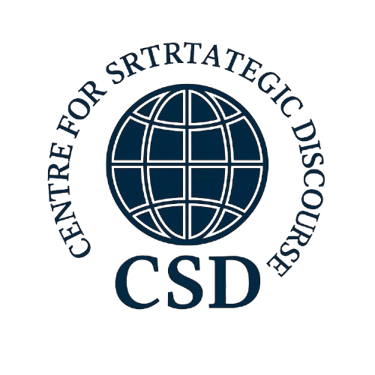Add your promotional text...
The Price of Power: Gulf Wealth and the Trump World’s Influence Machine
In the wake of President Donald Trump's high-profile visit to the Middle East in May 2025, this investigative feature examines the renewed wave of billion-dollar investments from Gulf states — particularly Saudi Arabia, Qatar, and the UAE — into U.S. markets and ventures closely linked to Trump’s inner circle. As reports surface about private business dealings involving his family and confidants, the article raises pressing questions about the integrity of U.S. policymaking. Are strategic decisions being swayed by foreign capital? Is access to Washington now for sale to the highest bidder? The piece delves into the geopolitical and ethical consequences of this emerging era of transactional diplomacy.
By Special Correspondent, CSD Islamabad
5/20/20252 min read
Wa
WASHINGTON/RIYADH/DOHA — As President Donald Trump wrapped up his latest diplomatic and commercial tour of the Middle East this month, a renewed storm of controversy brews over what critics are calling a blatant monetization of influence in Washington.
Fresh deals reportedly worth over $600 billion were announced during Trump’s trip, with Saudi Arabia, the UAE, and Qatar committing major investments in U.S. infrastructure, technology, real estate, and private ventures. What sets these deals apart is not just their scale, but the proximity of the beneficiaries to the President himself — including close associates and family members such as Jared Kushner, who continues to be linked to high-profile investment funds backed by Gulf sovereign wealth.
In particular, Saudi Arabia’s Public Investment Fund (PIF), chaired by Crown Prince Mohammed bin Salman, has recently channeled billions into U.S. ventures, many of which are reported to have direct or indirect links to entities close to the Trump family. Analysts say these deals are not simply economic gestures, but instruments of strategic influence. “This isn’t just business — this is power projection by other means,” says one Washington ethics expert.
The Qatar Question
Qatar, once subjected to a crippling regional blockade in 2017 — during Trump’s first term — is also back in the spotlight. According to media reports, Qatari investors were previously linked to potential investments in Kushner-owned properties, but the deal allegedly fell through. Some analysts suggest that the subsequent blockade may have been linked to Doha’s reluctance to financially support the then-president’s son-in-law — a move viewed by many as a chilling example of private business interests steering public foreign policy.
Now, in a seeming reversal, Qatar is again pouring money into U.S. markets, and even reportedly gifted a luxury aircraft to the Trump circle, prompting further speculation. While these claims are still under investigation and not confirmed, the optics alone have alarmed many observers.
Buying Access to Washington?
The rise of such direct financial engagements — and their apparent comfort within the Trump administration — signals a disturbing shift in U.S. governance. No previous administration has been so openly entangled with commercial interests while in office, critics argue.
The ethical dilemmas are immense. If foreign investments are tied to political favor, where does the U.S. draw the line between diplomacy and deal-making? Is access to the Oval Office now dictated by the size of one's investment portfolio?
Implications for Global Politics
Critics warn that this era of transactional diplomacy could unravel long-held principles of U.S. foreign policy — trust, transparency, and democratic accountability. The fear is not just about influence in Washington, but about how policy decisions reverberate globally.
If foreign actors believe that strategic decisions can be purchased, what prevents a breakdown in alliances built on values rather than investments? Moreover, this precedent could encourage other global powers to play the same game, potentially eroding norms and fueling a new era of geo-economic manipulation.
A New Normal?
As the Trump administration continues to blur the lines between public office and private gain, many worry that these deals — even if technically legal — represent a new low in political ethics. “It’s not just about legality,” says a Georgetown University scholar. “It’s about how the presidency is perceived — domestically and internationally.”
If money now dictates foreign policy outcomes, the geopolitical landscape is in for a major transformation — one where the highest bidder, not the closest ally, calls the shots.
Stay informed with our latest project news.
Connect
info@strategiccentre.org
© 2025. All rights reserved.
media@strategiccentre.org
Terms & Policy
Stay UPDATED
